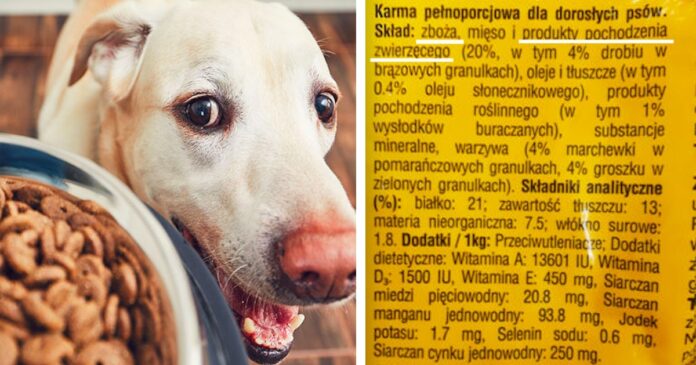Deciding which karma to choose and what to consider when making that decision is very difficult. After all, it is about the health of our little ones who are like children to us. To make your decision easier, we have six steps to follow when choosing a pet food.
Six steps to ensure that your dog always has a healthy stomach and an excellent appetite
If you are canine parents, you must have spent many hours looking for the best form of nutrition for your pet. Sometimes it feels like a mission doomed to failure – how to find something that's healthy, tasty and doesn't ruin your wallet!?
# 1 Consider your dog's form, age and health condition
When choosing a food, important factors are: physical condition, temperament and overall health of the pet.
For example, puppies and nursing bitches need considerably more calories, while senior dogs need less. It is similar with activity – energetic and lively dogs that move a lot need to get more calories than dogs spending time mainly on the couch.
The right type and amount of dog food will help you avoid health problems for your pet .


# 2 Read labels
Always read the food label. There you will find the ingredients from which it was made. A good pet food should be mostly meat and should not contain harmful additives.
Always choose the highest meat content possible. Dogs are carnivores and only in exceptional cases, such as severe allergies, can they switch to a vegetarian diet. Additionally, when searching, make sure that there are no grains in the food. For example, corn, although digestible, has little protein and hardly any vitamins and minerals. The only reason it is used in this industry is because it is cheap. Corn is not harmful to your dog – but don't be fooled by it contains nutrients.

# 3 Learn what the different ingredients are
The ingredients are listed on the label in order of the highest content in the feed. Keep in mind that sometimes meat may come first due to its high water content which increases its weight. Animal products can mean all other parts of an animal's body. According to the current guidelines, no pet food should contain hair, horns, teeth or hooves.


# 4 Allergy alert
If you are not sure if your dog is allergic or intolerant to any food, take a good look at it after eating. Licks paws? I'm scratching? Vomiting? Has diarrhea? This may indicate that he is actually allergic, and a good vet will know what tests to do and what to exclude from the menu of a pet. Sometimes these symptoms are due to the poor quality of the meat used in the food, so be sure to consult a specialist.


# 5 Quality assurance
There are many producers of pet food and not all meet the relevant requirements. Make sure the brand you choose is trustworthy. It is also worth mentioning that the most expensive food will not always be the best. Always read labels!


# 6 Check where the food ingredients come from
Once you find the food that meets all the requirements, check where the ingredients come from and how they were obtained. This information very rarely appears on the packaging, although sometimes producers boast that their ingredients are of acceptable quality for people. dog friend 🙂


